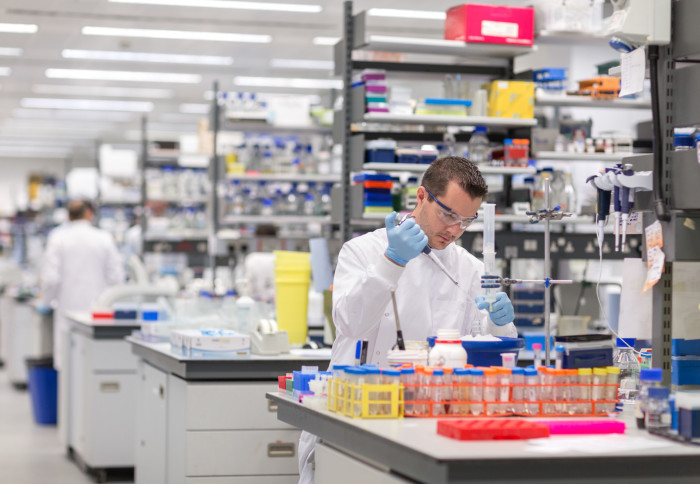New Riffyn-Imperial partnership set to accelerate synthetic biology research

A new open-science collaboration will establish a digital backbone for synthetic biology research and education in scientific reproducibility.
Announced today, the open-science collaboration between Riffyn, Imperial College London's Centre for Synthetic Biology (IC-CSynB), and SynbiCITE’s London Biofoundry will bring Riffyn’s process data system, Riffyn Nexus, to the public synthetic biology research community in the UK.
The partnership will establish process-driven research methodologies at the College through doctoral education and by equipping Imperial biofabrication facilities with a digital backbone for laboratory automation and data analytics.
“Most academics are not equipped with the means to implement industrially proven data systems, but now that this capability has been offered openly to our Imperial colleagues, we have the capacity to truly increase the repeatability and translational capacity of our synthetic biology research,” said Professor Paul Freemont, Head of the Section of Structural and Synthetic Biology in the Department of Infectious Disease and Co-founder and Director of SynbiCITE.
“Riffyn’s technology has already helped double the pace of R&D for industrial customers. We are thrilled to partner with Imperial to bring the same outcomes of speed, fidelity and data reusability to the non-profit scientific community,” said Dr Timothy Gardner, Founder and CEO of Riffyn.
Synthetic biology research groups will work closely with Riffyn to test and develop Riffyn Nexus for academic research use cases, and Riffyn Nexus will be implemented across the London Biofoundry SynBio stack to help realise the process, data, and analytics objectives of the London Biofoundry.
A new Centre of Excellence will be established to support the training, use, and integration of Riffyn Nexus across Imperial research labs, and an ongoing educational program will train doctorate-level students to become Riffyn Nexus expert users.
“This partnership is helping us increase reproducibility and quality control in the lab while maintaining the flexibility required for fast-paced academic research. Through this, we are witnessing an exciting paradigm shift and a new way of working at IC-CSynB,” said Professor Guy-Bart Stan, Co-Director of IC-CSynB and Head of the Control Engineering Synthetic Biology group at Imperial.
Learn more about the story behind the new partnership on the Riffyn website: 'Building a digital foundation for synthetic biology research'
This article was adapted from a press release by Riffyn.
Article text (excluding photos or graphics) © Imperial College London.
Photos and graphics subject to third party copyright used with permission or © Imperial College London.
Reporter
Ms Genevieve Timmins
Academic Services